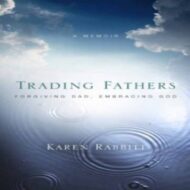Why is it that everything God does can be disputed? I just read the Pentecost account where the people came running to see what had happened because they heard the “mighty rushing wind.” At least fifteen different people groups were represented in those who heard the 120 disciples speaking in unlearned languages. Each of them heard their own language. And yet, some said, “They’re drunk.”(Acts 2)
 Even after the resurrection of Jesus, when he’d been with his followers for forty days, eating with them, teaching them, letting himself be touched–some doubted. (Matt.28:17)
Even after the resurrection of Jesus, when he’d been with his followers for forty days, eating with them, teaching them, letting himself be touched–some doubted. (Matt.28:17)
And when my sciatic nerve pain was healed through prayer with the laying on of hands, was that God? It hasn’t come back in many years. Feels like God to me. And yet, others would say it was coincidence or I did something else that caused the pain to resolve.
Don’t you have a dozen places in your journey where you’re sure you’ve been touched by the God who is there and active, that others would question?
Believing these are God touches is about faith, of course, but why is faith important? The phrase came to me: “He wants to be wanted.” When I searched for that phrase, I learned that A.W. Tozer already said it. God wants to be wanted. He wants to be desired. He wants our genuine, heartfelt love.
Just like us. We want to be wanted. Seems to be one of the ways in which we are made in his image.
Jesus, we want to want you today. We want to want you as you deserve to be wanted. With whole hearts and active minds and hot pursuit.

